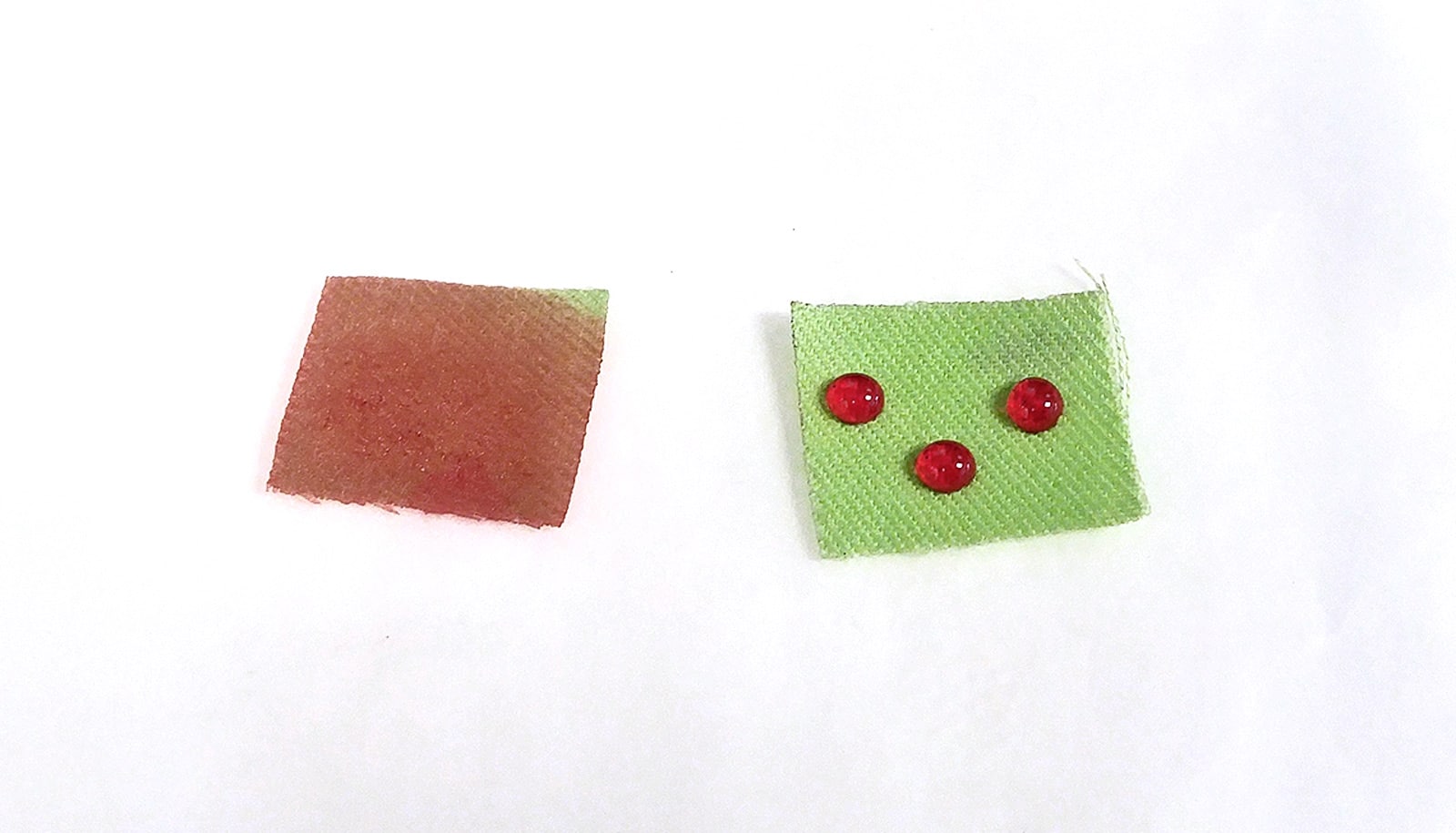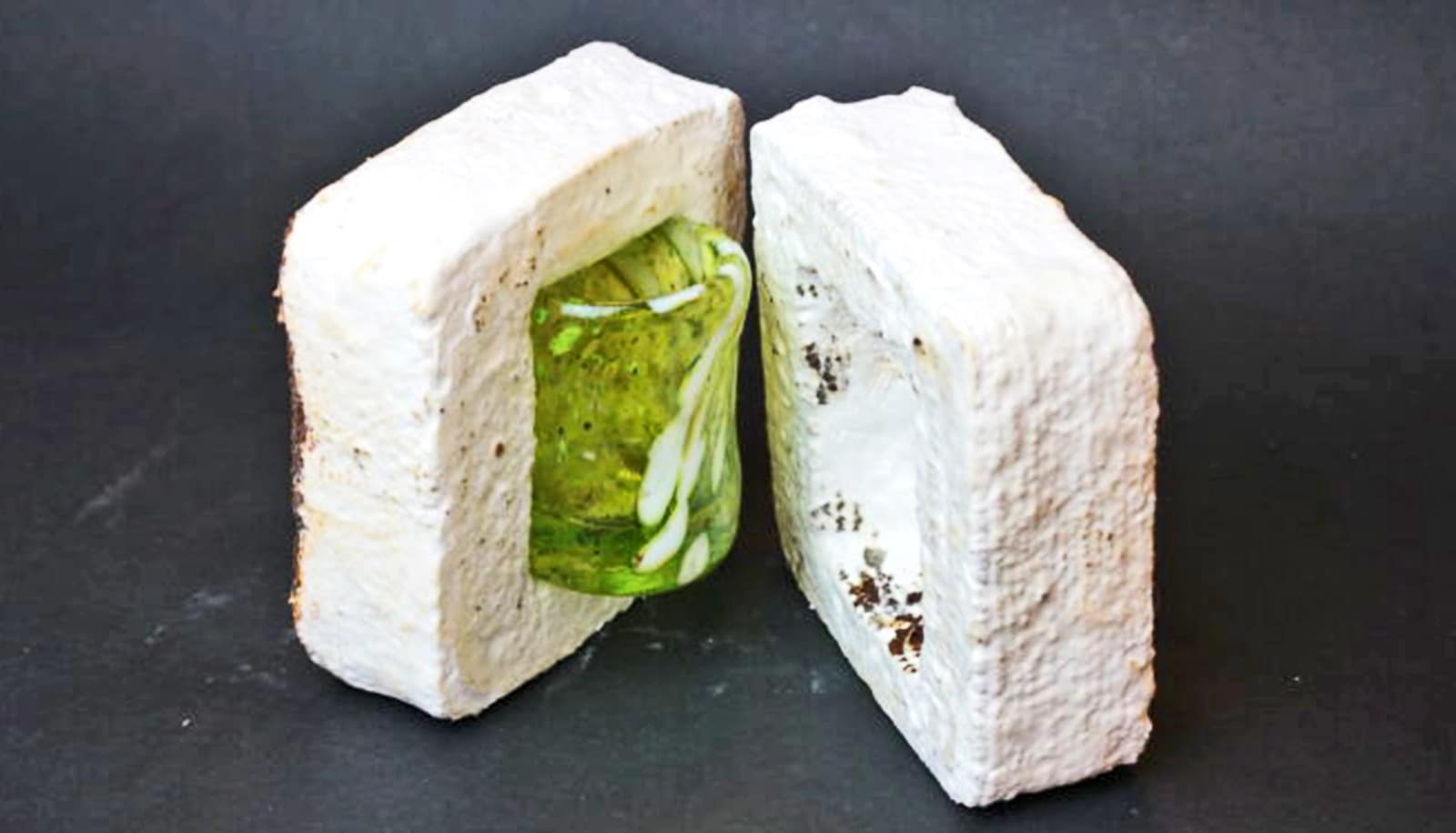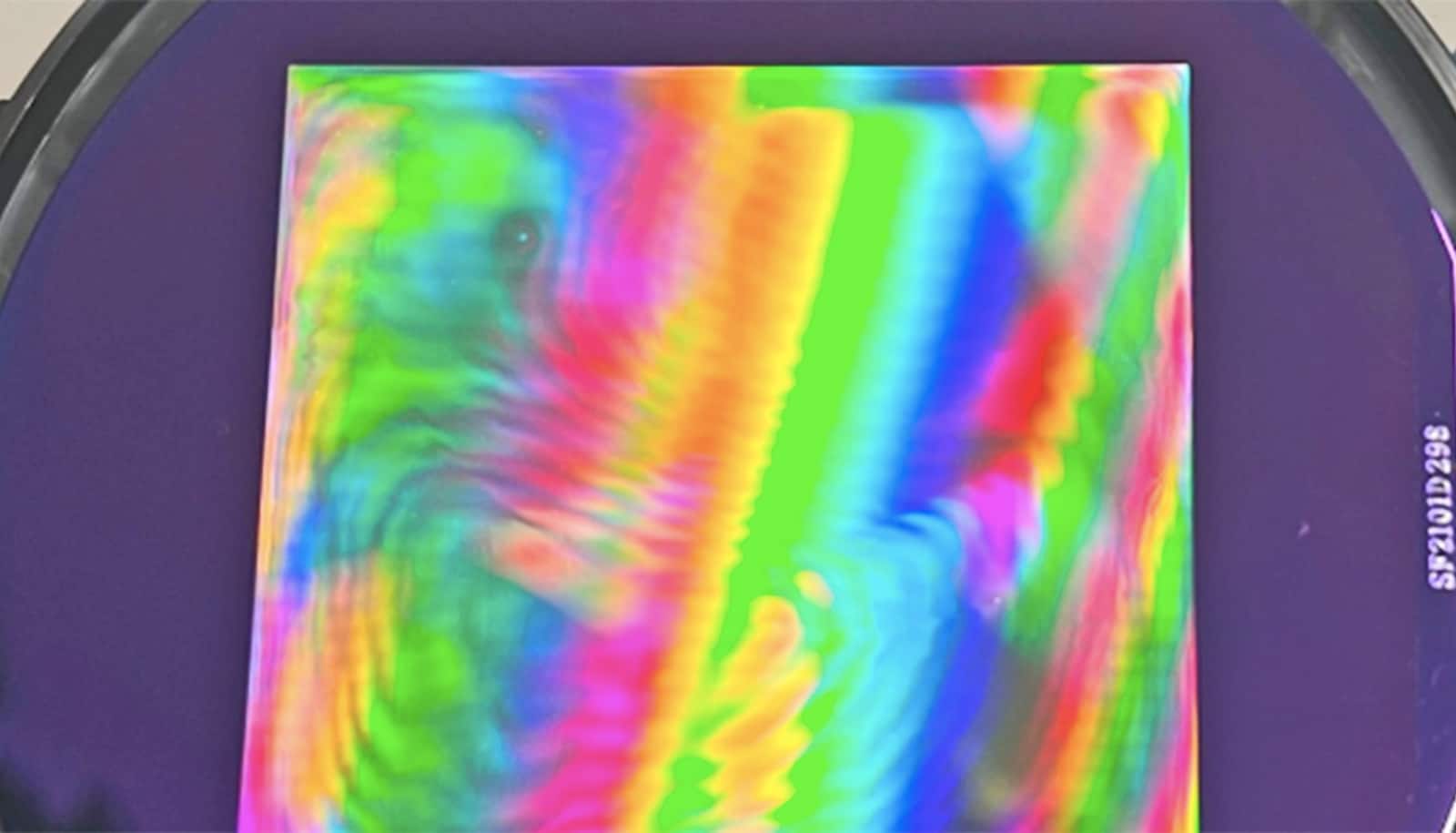Giving fabric a resistance to oil, called oleophobicity, makes cleaning spaghetti sauce off your favorite shirt as easy as spilling it in the first place. A new coating offers this quality without fluorines, which break down into chlorofluorocarbon gas, a greenhouse gas that’s harmful to the environment.
Emmanuel Giannelis, professor of materials science and engineering in the Cornell University College of Engineering, and his group were working on super-hydrophilic polymeric membranes that are used in water purification. Jintu Fan,professor and chair in the fiber science and apparel design department, asked if they could team up and “basically apply some of the work that we were doing in polymeric membranes to textiles,” Giannelis says.

They worked with an apparel maker on creating a polymer that could make fabric more breathable while retaining wrinkle resistance—always a challenge—and Giannelis says they made good progress along that line.
“The company came back and said, ‘That is good and great—but can you do something similar with oleophobic coatings?'” he says.
Postdoctoral researcher Genggeng Qi developed a polymer that combines well-known chemistry with a rough surface texture that creates little air pockets. Fluids with a high enough surface tension will ball up on this fiber and not stick, making for easy cleaning.
This roughness uses the same principle as the water-resistant quality of the lotus leaf, which has a rough nanostructure and naturally repels water.
Fan is excited by early results of this material, noting that they’ve just done testing using mineral oil, which has a low surface tension.
“We’ve found that even after 30 washings, it’s still durable, which is great,” he says. “Even if we can achieve [oleophobicity] even close to fluorine-based [polymers], that would be a huge breakthrough.”
Watch: Scientists can’t defeat water-repellent coating
Giannelis is cautiously optimistic about the work. “I don’t want to declare complete victory,” he says with a smile, “but we believe we are the first group to show that non-fluorine-based chemistry opens up the possibility to create oleophobic coatings that are probably good enough to resist stains from vegetable oils, olive oil, and other oils.
“For industrial applications…we’re not quite there yet,” he adds. “But we believe that we’ve opened up an opportunity, and more work will get us there.”
“In general, collaboration with the engineering department is very interesting and fruitful,” says Fan. “They are very good and bring a lot of wonderful ideas. But maybe in the past they were not targeting the textile and fashion industry, which is a $3 trillion a year industry.”
The Center for Licensing Technology has filed a provisional patent on the material.
Source: Cornell University



